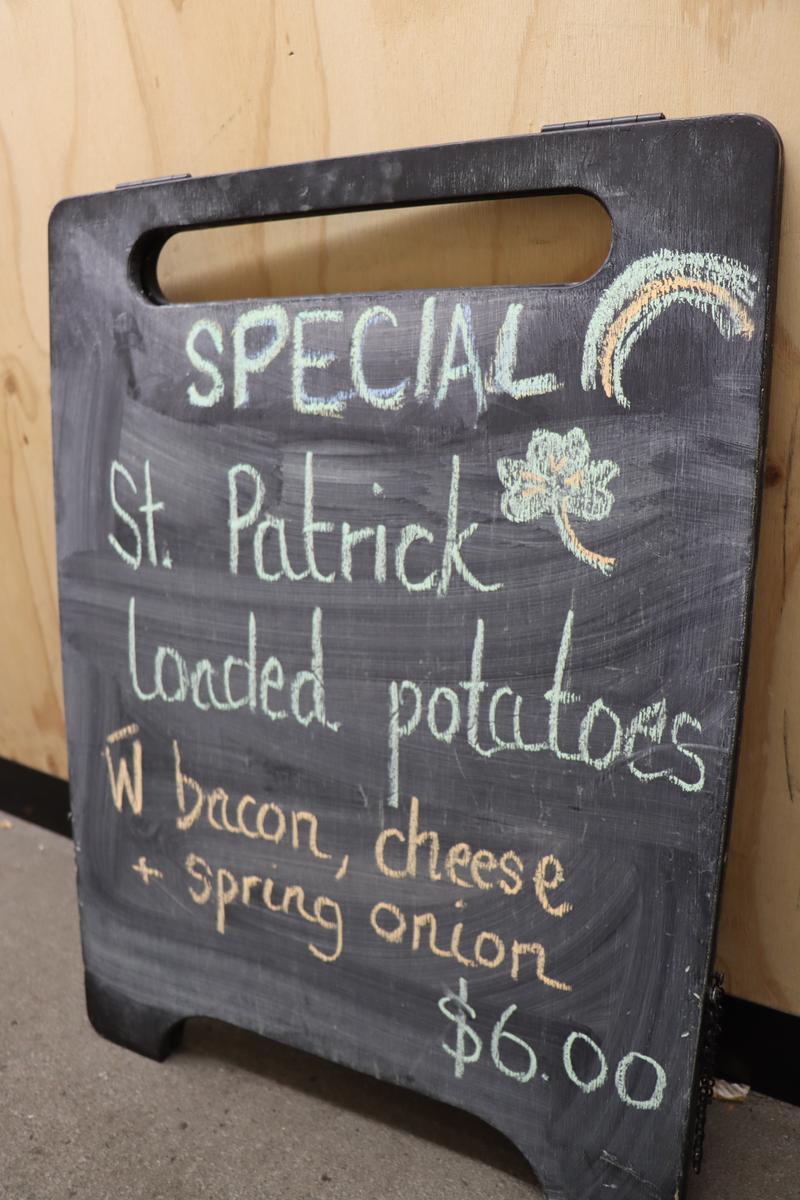Anecdotes from the Archives
Margaret Rootes, Heritage Officer

Anecdotes from the Archives
Margaret Rootes, Heritage Officer


As has been recorded elsewhere, on Tuesday, 17 March, in line with honouring the 250th anniversary of the founding of the Presentation Sisters in Ireland, we celebrated our Irish heritage by observing St Patrick’s Day in some fun ways.
One way we celebrated was with food, and clever Phil in Murphy’s Café provided us with stuffed potatoes and very green salads.
This led me to think about the potato and how, historically, it was the staple and sometimes the only food of the Irish people in the nineteenth century. This meant that when a combination of policy failures and a potato blight occurred between 1842 and 1857, starvation decimated the Irish population. In addition, desperate emigration to other countries played havoc with population numbers.
During the Great Famine/Great Hunger/Irish Potato Famine, 2.1 million people left Ireland. By the time Bishop Daniel Murphy was appointed to Tasmania in 1866, a large proportion of the Tasmanian population was Irish by birth or descent.
These facts led me to wonder about the survival of Bishop Murphy and his sister Ellen (Mother Francis Xavier Murphy) during the famine. Born in 1815 and 1820 respectively, Daniel and Ellen would have been young adults at the time of the Irish Potato Famine. As he had been a missionary in Madras since 1838, Daniel would have missed the brunt of the famine.
Ellen, on the other hand, ran away from home in 1843 to join the Presentation Convent in Fermoy. Here, as regards the potato famine, history shows an intersection of Ellen and the starving, often homeless people around Fermoy. These were indeed the very people whom Nano had served from her bottomless heart a century earlier.
By 1847, Ellen was the Mother Superior at Fermoy, and again between 1851-1854. As documented, she was in an active position to show compassion and support to those around her caught up in the despair of the famine. Many years later, at her funeral in Hobart, it was said that she not only became a beggar on behalf of the suffering, but she also moved heaven and earth to raise large sums of money to feed and clothe them.
It is little wonder then, that this woman made such an impression on the people of Richmond in 1866-1868, with her deep well of compassion and intuition, that they petitioned her brother, the Bishop, to allow her to remain in their town when it came time for the Sisters to take ownership of their new convent in Hobart.
In Hobart, her great love of the poor continued to manifest itself, especially in the creation of St Columba’s School, the “poor school.” It is said that every morning after her duties were done, Ellen was to be found working in the “poor school,” whose pupils were both new and yet familiar to her. She begged and raised money for them as well.
Neither Daniel nor Ellen could ever have imagined that 157 years later, the people of the school which they founded would be eating potatoes to celebrate the Irishness of their origins!